Agrivoltaics Fundamentals and Best Practices
August 20-21, 2024 | Online :: Central Time
“This is the most comprehensive Agrivoltaics course on the market. I highly recommend to anyone working in the renewable energy space that is trying to get up to speed on agrivoltaic project development and market trends.” Sr. Development Associate, NYSERDA
“The AgriPV forum included a wide variety of experts from industry, academia, research, and other national organizations. This gave different perspectives and viewpoints on an emerging subject that is still relatively unknown to the solar industry.” Anonymous
The widespread adoption and development of solar projects across a nearly full range of landscapes, topographies and geographies has triggered multiple “dual use” innovations. Among the most promising of these is agrivoltaics: the co-location of solar with natural resource practices broadly characterized as agriculture. This course delves into:
- Combining crops, pollination, grazing and more with solar arrays to amplify the potential of solar projects
- Maximizing the compatibility, sustainability and profitability of agrivoltaics
- Innovative concepts of co-locating solar installations with agricultural practices, unlocking economical and practical benefits in diverse landscapes
Join us to maximize the dual-use outcomes of solar energy and natural resource practices in this dynamic and forward-thinking course.
Learning Outcomes
- Review the research pilot projects and best practices that best inform solar project developers considering agrivoltaics projects
- Identify the Ag practices that can be co-located with solar project development, as well as their potential outcomes
- Identify common landowner questions and how to nurture a relationship to proactively address concerns regarding the legal and financial aspects of leasing their land
- Explore the challenges and opportunities of grid-scale agrivoltaics, including considerations for utility-scale solar development, community involvement, design considerations, and environmental benefits
- Gain insights into US policy and opportunities for agrivoltaics, including foundational policy principles and strategic industry approaches
- Explore the ecology and management of agrivoltaics grazing systems
- Explore sustainable solar development goals and their impact on industry practices
- Examine real-world case studies of agrivoltaics projects
Tuesday, August 20, 2024 : Central Time
8:45 – 9:00 a.m.
Log In and Welcome
12:15 – 1:00 p.m.
Lunch Break
9:00 a.m. – 4:30 p.m.
Conference Timing
9:00 – 9:05 a.m. :: Overview and Instructions
9:05 – 9:30 a.m. :: Opening Keynote
This opening presentation will explore the importance of cross-disciplinary collaboration and knowledge exchange in unlocking the full potential of agrivoltaics. Agrivoltaics can provide resilience in agricultural systems and provide a key element in sustainable development.
Lexie Hain, Director – Agrivoltaics and Land Management, Lightsource bp
9:30 – 10:30 a.m. :: Grid Scale Agrivoltaics: Challenges and Opportunities
This presentation will cover the following:
- Considerations for utility scale solar development (accommodating agriculture vs. maintaining affordable electricity prices)
- Project developer’s business objective (community buy-in, maintaining the right to develop solar on farmland)
- Community/regional involvement for preservation of farmland and supporting local/regional farm economies
- Design considerations
- Types of agriculture that may be accommodated (within panel area vs. project perimeter)
- Benefit to adjoining agriculture (or other) operations
- Habitat restoration, soil conservation, water retention
- Satisfy off-taker ESG objectives
- Arnprior Solar case study
Kevin Campbell, Director, Development, EDF Renewables
Josh Bennett, Project Developer, EDF Renewables
10:30 – 10:45 a.m. :: Morning Break
10:45 – 11:30 a.m. :: Economics of Integrating Commodity Crops in Agrivoltaics Systems in the US Midwest
This presentation will discuss a cost-benefit framework that considers the effects of solar panels on crop yields and various field designs and space and height requirements in agrivoltaic systems to accommodate row crop production with conventional farm equipment and compares the net benefits of agrivoltaics to those with stand-alone PV or crop production on a respective farm.
Paul Mwebaze, Research Economist, Institute of Sustainability, Energy and Environment (iSEE) at the University of Illinois
11:30 a.m. – 12:30 p.m. :: Sustainable Solar Development Goals
With the help and inspiration of industry best practices and extensive research, the Inovateus Team developed seven pillars that are designated as Sustainable Solar Development Goals (SSDG). These are to be practiced internally, with key partners, stakeholders, and the industry as a whole. These seven goals cover solar from a circular or turnkey approach. This presentation will cover the seven goals and give an overview of the impact on Inovateus Solar. SSDG steps include:
- Green Procurement
- Optimal System Design and Performance
- Best Safety and Quality
- Project Vitality
- Eco-Friendly Habitat
- Zero Waste Initiative
- End of Life Planning
Tyler Kanczuzewski, Vice President of Sustainability, Inovateus Solar
12:30 – 1:15 p.m. :: Lunch Break
1:15 – 2:00 p.m. :: Setting the Table: US Policy and Opportunity for Agrivoltaics
There has been a lot of conversation and movement on agrivoltaics structural policy over the last year. The United States is catching up to Europe in terms of deployment and has the potential to be the leader on policy at the federal level. In this session, attendees will learn about the foundational policy principles of agrivoltaics and opportunities to use agrivoltaics strategically as an industry to unlock more MW.
Lucy Bullock-Sieger, Vice President of Strategy, Lightstar Renewables
2:00 – 2:45 p.m. :: Legal Issues and Solutions in Agrivoltaic Project Development
This presentation will review common legal issues that arise in the development of agrivoltaic projects and ways in which developers and their counsel address those issues. Topics covered will include:
- Land use and environmental permitting for agrivoltaic projects
- Integrating agrivoltaic projects with property tax programs for agricultural land
- Integrating agrivoltaic projects with agricultural preservation restrictions
- Qualifying for special state solar incentives for agrivoltaic projects
- Contracting for agrivoltaic projects – ground leases, farming services agreements, and other contracts
Jonathan Klavens, Principal, Klavens Law Group, P.C.
2:45 – 3:00 p.m. :: Afternoon Break
3:00 – 3:30 p.m. :: How to Design and Implement Optimal Agrivoltaic Systems
Sandbox Solar has been designing and installing agrivoltaics systems in Colorado since 2019 and developed the SPADE Agrivoltaic Design tool. This session will explore the tactics and approaches Sandbox Solar has taken to successfully design systems with the hosting farmer and get projects in the ground. Explore the various types of installations that are possible: vertical bifacial, raised single-axis tracking, mobile agrivoltaics, and semi-transparent panel installations.
Ian Skor, PE, Owner & CEO, Sandbox Solar, LLC
3:30 – 4:15 p.m. :: Case Study: Agrivoltaic Community Collaboration
Connexus Energy, the Midwest’s largest electric cooperative, pioneered the use of pollinator-friendly ground cover for grid-scale solar more than eight years ago. Now, in partnership with non-profit Big River Farms and the National Renewable Energy Lab, Connexus is demonstrating and documenting safe and replicable practices and processes to enable use of solar site land for cultivation of specialty, hand-harvested crops by emerging farmers.
Rob Davis, Public Affairs & Program Director, Connexus Energy
Wednesday, August 21, 2024 : Central Time
8:45 – 9:00 a.m.
Log In and Welcome
12:00 – 1:00 p.m.
Lunch Break
9:00 a.m. – 4:00 p.m.
Conference Timing
9:00 – 9:30 a.m. :: Case Study: Harvesting the Sun: Exploring Agrivoltaics in Horticulture through Apple and Raspberry Case Studies
This presentation delves into the innovative concept of agrivoltaics within horticulture, focusing on the intersection of agriculture and renewable energy. By examining real-life case studies in apple and raspberry cultivation, this session will explore the potential, advantages, and drawbacks of integrating solar panels with horticulture practices. Through a detailed analysis of these use cases, attendees will gain valuable insights into the practical application of agrivoltaics, paving the way for a deeper understanding of its impact on crop yield, energy production, and sustainability.
Constantin Klyk, Founder and Manager, Agri-PV-Consulting
9:30 – 10:30 a.m. :: How and Why the Vegetation Establishment on Utility-Scale SolarProjects Can, and Does, Go Wrong
This session will look at the many reasons why the final vegetative cover on solar sites has oftentimes been established and performed less than expected, especially when pollinator health and habitat benefits are a project objective. Just as there are codes for wiring and other aspects of a solar project, there is a “code” for the vegetative cover establishment and management that needs to be followed. This presentation will talk about the many important aspects of seed mixture design, seed procurement, seed storage, planting techniques, planting timelines, site preparation, management during year 1, etc.
Peter Berthelsen, President, Conservation Blueprint and Executive Director, The Bee and Butterfly Habitat Fund
10:30 – 10:45 a.m. :: Morning Break
10:45 – 11:30 a.m. :: Case Study: Managing Agrivoltaics with Perennial Vegetation to Maximize Ecosystem Services
The focus of this study was to determine how various perennial vegetation management strategies influence the provision of ecosystem services by agrivoltaic facilities. Key ecosystem services that will be discussed include forage/hay production, pollinator habitat, and soil carbon sequestration. This research was done at Jack’s Solar Garden in Longmont, CO and can inform agrivoltaic management plans in other semi-arid climates throughout the Rocky Mountain region.
Christopher Toy, Ph.D. Candidate at Colorado State University, Department of Soil and Crop Sciences
11:30 – 12:00 p.m. :: Modeling the Agrivoltaic Microclimate
In recent years, research from both industry and academia has focused on the microclimate effect of agrivoltaics and its influence on crop growth. This research often covers topics such as irradiance dynamics, thermal modeling, and crop yield prediction. With a stronger handle on these dynamics, better agrivoltaics systems can be designed with microclimate and crop dynamics in mind. This session will focus on current breakthroughs and barriers in agrivoltaics modeling, as well as the potential for data-driven agrivoltaics design.
Peter Westbrook, Co-Founder, Fundusol
12:00 – 1:00 p.m. :: Lunch Break
1:00 – 2:00 p.m. :: The Ecology and Management of Agrivoltaic Grazing Systems
- Rangeland ecology as our agrivoltaics foundation
- Harvesting the sun
- Social-ecological systems
- The role of large herbivores
- Managing solar power plants as ecosystems
- Regenerative grazing concepts
- Ecosystem processes
- Grazing principles
- Considerations for agrivoltaics grazing plans
- Infrastructure (shelter, fencing)
- Animal nutrition (water, supplement, forage quality)
- Season of use
- Duration
- Stocking density
- Recovery
Dr. Anna Clare Monlezun, Founder, Graze LLC and the Rangeland Living Laboratory Inc
2:00 – 3:00 p.m. :: Targeted Grazing for Vegetation Management on Solar Sites
Cannon Valley Graziers (CVG) is a vegetation management company that helps clients to design and implement targeted grazing systems on solar sites throughout the upper Midwest and beyond. This presentation will provide a practical overview on the benefits of solar grazing and will dive into the details on how to plan and execute successful targeted grazing projects on solar assets of all sizes. Topics of discussion include:
- Regenerative agriculture and the three principles of targeted grazing
- Applied grazing: what makes a successful project
- The effect of targeted grazing on soil and water quality
- Carbon sequestration and carbon crediting potential
- CVG’s approach to vegetation management
- Site planning, seed mixes, and design considerations
Arlo C. Hark, Owner, Cannon Valley Graziers, LLC.
3:00 – 3:15 p.m. :: Afternoon Break
3:15 – 4:15 p.m. :: Case Study: Community Scale Agrivoltaic Development in Massachusetts
As the interest in agrivoltaics development increases across the nation, only one state has an incentive in place. Despite these incentives, Massachusetts has seen just a handful of agrivoltaics projects energized in the five years Agricultural Adder has existed. This session will explore how Hyperion Systems has been able to develop projects in this space. An emphasis on the developer’s perspective will be showcased as well as including the perspective of Hyperion’s farmer partner, Joe Czajkowski, owner of Lakeside Organics of Hadley.
Jake Marley, Manager and Owner, Hyperion Systems, LLC
4:15 – 5:00 p.m. :: Case Study: Retrofitting Traditional PV to Create Megawatt Scale Agrivoltaics in the Southwestern US
The University of Arizona Semi-Arid Lab for Scalable Agrivoltaics (SALSA) has been a pioneer in agrivoltaics research across dryland regions. The team is retrofitting a traditional utility-scale site to maximize energy, food, and water benefits in the arid Southwestern US. University of Arizona is demonstrating the potential for dual use and establishing best practices for retaining and revitalizing agriculture in a warming and drying world through agrivoltaics with climate smart hand-harvested crops.
Greg Barron-Gafford, Professor, University of Arizona
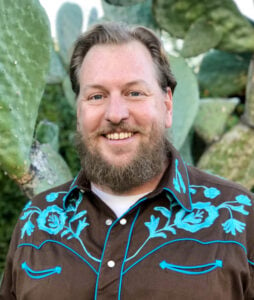 Greg Barron-Gafford, Professor, University of Arizona
Greg Barron-Gafford, Professor, University of Arizona
Dr. Greg Barron-Gafford is an Assistant Professor with a split appointment between the School of Geography & Development and Biosphere 2. His research is centered on developing a better understanding of semi-arid ecosystem responses and adaptation to climatic changes, such as increased temperature and reduced precipitation. Dr. Barron-Gafford has used a combination of growth chambers, greenhouses, Biosphere 2 macrocosms, and a series of natural-system eddy covariance towers to quantify carbon and water flux across a mosaic of ecosystem types both natural and built environments. He is a leading expert in quantifying the influence that vegetative cover has on ecosystem carbon and water flux under current and project climate regimes. Dr. Barron-Gafford received his B.S. in Environmental Sciences from Texas Christian University before earning his M.S. in Forest Ecology from the University of Georgia and a Ph.D. in Ecology & Evolutionary Biology from the University of Arizona.
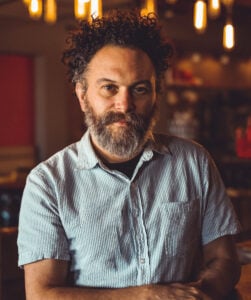 Josh Bennett, Project Developer, EDF Renewables
Josh Bennett, Project Developer, EDF Renewables
Mr. Bennett joined EDF Renewables in 2007. His renewable energy career started as a Wind Technician on legacy wind projects in northern California, before transitioning to manage EDF Renewables meteorological towers in the US, Canada, and Mexico. In 2020, he moved to the New York Development team where he currently manages 500MW of solar projects in the state. Prior to working at EDF Renewables, Josh was a Middle School teacher in Oakland, California, with a degree in Child Psychology from San Francisco State University.
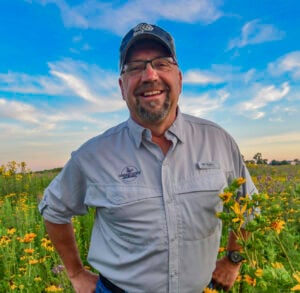 Peter Berthelsen, President, Conservation Blueprint and Executive Director, The Bee and Butterfly Habitat Fund
Peter Berthelsen, President, Conservation Blueprint and Executive Director, The Bee and Butterfly Habitat Fund
With a master’s in wildlife science from Texas Tech University and a bachelor’s degree in Wildlife from the University of Wisconsin-Stevens Point, Peter brings over three decades of expertise in wildlife conservation and habitat management. Peter currently offers consulting services for wildlife and pollinator habitat needs through Conservation Blueprint, while also serving as the Executive Director for The Bee & Butterfly Habitat Fund. His diverse work experience includes positions with state and federal agencies such as the Wisconsin Department of Natural Resources and the US Fish & Wildlife Service. Additionally, he has been actively involved in numerous organizations and committees dedicated to pollinator conservation, receiving accolades such as the “Hoopingarner Award” from the American Beekeeping Federation and the “Farmer-Rancher Pollinator Conservation Award” from the North American Pollinator Protection Campaign and National Association of Conservation Districts. His research interests focus on the intersection of solar energy production and pollinator habitat, promoting the creation and management of diverse pollinator habitats, and overcoming obstacles in conservation program delivery. Peter is dedicated to advancing innovative solutions to ensure the sustainability of pollinator populations and their ecosystems.
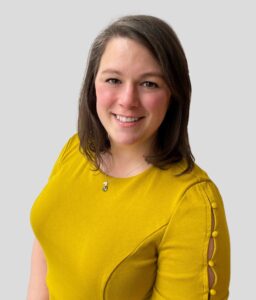 Lucy Bullock-Sieger, Vice President of Strategy, Lightstar Renewables
Lucy Bullock-Sieger, Vice President of Strategy, Lightstar Renewables
Lucy leads strategy for current and new markets, policy, government affairs, and marketing. Lucy works closely with advocacy organizations, industry colleagues, legislators, and administration officials across all Lightstar markets to advocate for sustainable and equitable solar program policy. Lucy is an expert in and advocate for solar and agricultural land use issues and has successfully worked to advance agrivoltaic dual-use policies across the country. For the last ten years, Lucy has focused on energy, land use, agriculture and public health policy and has her Master’s of Public Administration from Northeastern University.
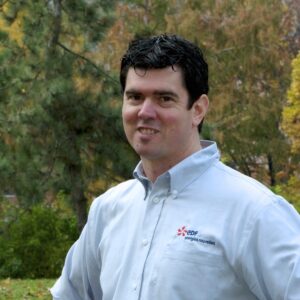 Kevin Campbell, Director, Development, EDF Renewables
Kevin Campbell, Director, Development, EDF Renewables
Mr. Campbell joined EDF Renewables in 2010 and currently holds the title of Director – Development. In this role, Kevin is the project lead during the development & permitting phase of various utility scale renewable energy projects across New York State. His primary responsibilities are to manage the land acquisition, permitting, community engagement, and preliminary design stages. Based in Toronto, Ontario, Kevin manages a diverse team of developers, land agents, environmental & engineering consultants, and attorneys, to navigate the complex development and permitting process in New York. Kevin sits on the NYSERDA Agricultural Technical Working Group and is on the Advisory Board of the American Solar Grazing Association. Kevin has 13 years of solar development experience in Canada and the United States and currently oversees a development portfolio of 1,000MW of solar, energy storage and wind projects in New York State. Prior to joining EDFR, Kevin held various engineering and operations roles for seven years with Shell Canada, and graduated from the University of Waterloo with a Bachelor of Applied Science degree in Environmental Engineering, Chemical Specialization.
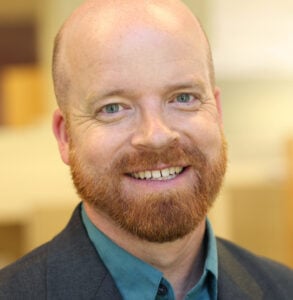 Rob Davis, Public Affairs & Program Director, Connexus Energy
Rob Davis, Public Affairs & Program Director, Connexus Energy
Rob Davis is public affairs, IIJA programs, and media relations lead at Connexus Energy, the Midwest’s largest electric cooperative, nationally and regionally recognized for its innovation, affordability, and providing reliability in the top five percent of all utilities nationwide. Davis also serves as chair of the advisory committee to the National Renewable Energy Lab’s InSPIRE study into low-impact solar. An alum of NREL’s Energy Executive’s training program, Davis’ work has been featured in trainings by the US Department of the Interior’s National Conservation Training Center, the U.S. Department of Energy, and US Environmental Protection Agency; in feature stories in Fast Company and Scientific American, and on TED.com. Previously, Davis helped launch technology start-ups and created the international crowdsourced campaign that launched the Firefox web browser. He is a graduate of Macalester College.
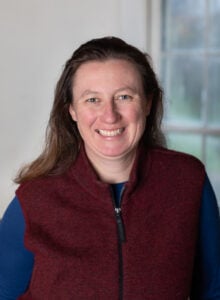 Lexie Hain, Director – Agrivoltaics and Land Management, Lightsource bp
Lexie Hain, Director – Agrivoltaics and Land Management, Lightsource bp
Lexie Hain is Director of Agrivoltaics and Land Management at Lightsource bp, Americas. Lexie holds a MSc from University of Edinburgh (UK) in Environmental Sustainability (2001) and a B.S. from Cornell University, Agriculture and Life Sciences (1999). A farm owner since 2003, she owned and operated a horticultural plant nursery (2005-2015). Lexie has raised sheep for solar grazing since 2017, contracting the flocks for vegetation maintenance in the northeastern United States. She co-founded and directed the American Solar Grazing Association (ASGA), from 2018-2022, and currently serves on the board of directors. At the close of 2023, Lightsource bp had achieved the number one position in solar grazing in the United States.
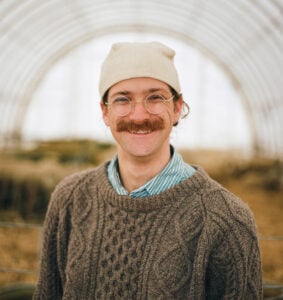 Arlo C. Hark, Owner, Cannon Valley Graziers, LLC.
Arlo C. Hark, Owner, Cannon Valley Graziers, LLC.
Arlo C. Hark is the co-founder of Cannon Valley Graziers, a vegetation management company serving the upper Midwest and beyond. His professional background encompasses expertise in agriculture, land management, and conservation ecology. Arlo has been actively engaged in a diversity of projects throughout Minnesota, with a specific focus on adaptive grazing and targeted vegetation management on solar sites.
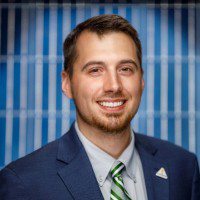 Tyler Kanczuzewski, Vice President of Sustainability, Inovateus Solar
Tyler Kanczuzewski, Vice President of Sustainability, Inovateus Solar
Tyler is the Vice President of Sustainability, Board Member and a minority investor of Inovateus Solar, LLC. He also serves as the Sustainability Manager and co-owner of Logistick, Inc., both South Bend based companies. Tyler was recently immersed in the Grand Rapids and West Michigan sustainability community while working on his MBA at Grand Valley State University, with an emphasis in Sustainability, and he graduated in 2019. Tyler has since led company efforts in stewardship and sustainable practices for both Inovateus Solar and Logistick, Inc. He did his undergraduate work at Holy Cross College in Notre Dame, IN, and graduated in 2012 with a Bachelor of Arts, and Major in Business. Tyler now also serves as an Advisory Board Member of PVpallet, Inc (reusable pallet concept), Board Member for St. Joseph County Parks Foundation, and sits on a regional leadership council for the Michigan Sustainable Business Forum. Tyler volunteers with a group called SolarRecycle.org that is helping advance solar equipment recycling, and sustainable solar resources. He is also a proud member and supporter of 1% for the Planet, Mamoni 100, and Ambassador for Alliance for the Great Lakes. Sustainability, renewable energy and conservation are things Tyler equally loves. He is passionate about making a positive impact on those around him, and to help the world think more about stewardship and sustainability.
 Jonathan Klavens, Principal, Klavens Law Group, P.C.
Jonathan Klavens, Principal, Klavens Law Group, P.C.
Jonathan Klavens is the principal of Klavens Law Group, PC. Drawing on a diverse background in general corporate, securities, project development and finance, energy transactional, energy regulatory, land use, environmental and nonprofit matters, he founded KLG in 2007 to enable innovative ventures that have positive environmental or other social impact. He and his colleagues have been deeply involved for many years in the development, financing, and purchase and sale of solar and other types of clean energy projects, including agrivoltaics. More broadly, his practice focuses on meeting the diverse legal needs of companies, investor and nonprofits in the areas of clean energy/clean technology, sustainable agriculture, social enterprise and impact investment. He is a graduate of Columbia College, Harvard Kennedy School and Northeastern University School of Law.
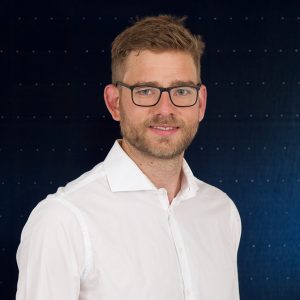 Constantin Klyk, Founder and Manager, Agri-PV-Consulting
Constantin Klyk, Founder and Manager, Agri-PV-Consulting
Constantin Klyk is the founder and manager of Agri-PV-Consulting. Before this, he was a project manager for agri-PV at Zimmermann PV-Steel Group, Germany. Further, he worked in research for ISC Konstanz where he worked on PV system design, and initialized the research on Agri-PV. He has also been involved in various international development projects as a PV engineer and project manager.
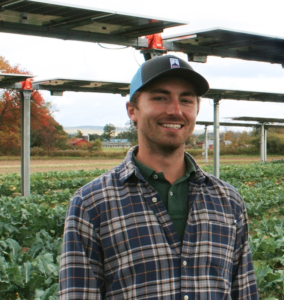 Jake Marley, Manager and Owner, Hyperion Systems, LLC
Jake Marley, Manager and Owner, Hyperion Systems, LLC
Jake Marley is the manager and owner of Hyperion Systems, LLC. Hyperion is a community scale agrivoltaics project developer based in Massachusetts. Hyperion has been in the dual-use space since 2009, having installed one of the very first agrivoltaics projects in the U.S. in S. Deerfield, MA. Hyperion offers our farmer clients various project ownership structures including direct ownership, lease options, and PPAs. Hyperion Systems also offers consulting services to other developers who are interested in agrivoltaics.
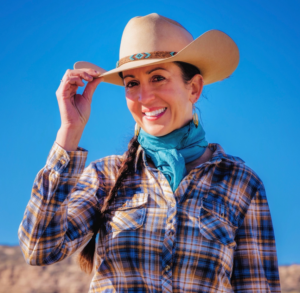 Dr. Anna Clare Monlezun, Founder, Graze LLC and the Rangeland Living Laboratory Inc
Dr. Anna Clare Monlezun, Founder, Graze LLC and the Rangeland Living Laboratory Inc
Dr. Anna Clare Monlezun is a rangeland ecosystem scientist, synthesizer, and collaborative facilitator. She considers herself a life-long student of nature who thrives in interdisciplinary work environments, assisting stakeholders in the discovery of common-ground paths for learning, management planning, and long-term thrivability in the interface of ranching and conservation. She offers state-of-the-science knowledge and practical engagement in environmental market solutions, ecosystem services valuation, plant-soil-water-carbon dynamics, and agroecological stewardship. A published writer, musician, and poet, Anna Clare enjoys bridging the worlds of science, art, and land management. A Colorado rancher herself, she brings her unique skillset to natural resource and grazing management in both her for-profit company, Graze LLC, and non-profit organization, Rangeland Living Laboratory Inc. Anna Clare is currently the Agrivoltaics Research Lead for a US Department of Energy funded project in partnership with solar developer Silicon Ranch. She is also honored to serve on the Agrivoltaics World Conference 2024 Scientific Committee. She brings to the field of agrivoltaics and the solar industry a “systems” perspective, where ecosystem stewardship is equally paramount to the production of clean energy. She holds a B.A. in Comparative Literature and Humanities, an M.A. in Community Counseling, an international Post-Graduate Certificate in Expressive Arts: Therapy, Consultation, and Social Change, an M.S. in Animal Sciences, and a Ph.D. in Ecosystem Science and Sustainability.
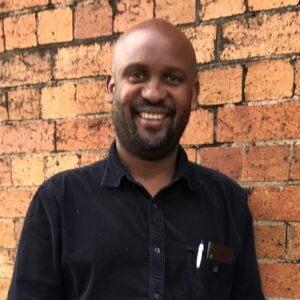 Paul Mwebaze, Research Economist, Institute of Sustainability, Energy and Environment (iSEE) at the University of Illinois
Paul Mwebaze, Research Economist, Institute of Sustainability, Energy and Environment (iSEE) at the University of Illinois
Paul Mwebaze is a Research Economist at the Institute of Sustainability, Energy and Environment (iSEE) at the University of Illinois, Urbana-Champaign, US. His current research focuses on the economics of using land for food and energy production.
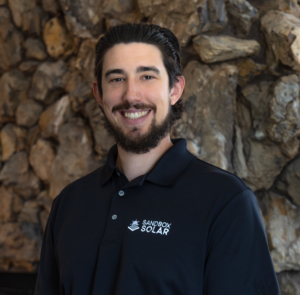 Ian Skor, PE, Owner & CEO, Sandbox Solar, LLC
Ian Skor, PE, Owner & CEO, Sandbox Solar, LLC
With over a decade of experience in the energy efficiency and solar energy sector, Ian Skor founded Sandbox Solar at 24 with just a Subaru and a toolbox. Now a prominent figure in Colorado, Sandbox Solar leads in residential, commercial, and battery storage solutions. Renowned nationwide for quality work and innovative projects like customized racking design and agrivoltaics through SPADE software. Ian’s expertise includes sales, marketing, project management, engineering, and procurement, among others.
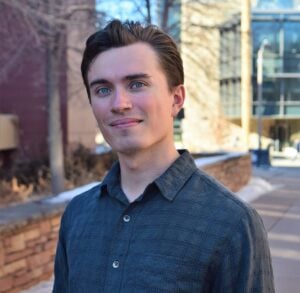 Christopher Toy, Ph.D. Candidate at Colorado State University, Department of Soil and Crop Sciences
Christopher Toy, Ph.D. Candidate at Colorado State University, Department of Soil and Crop Sciences
Christopher is a PhD candidate in the department of Soil and Crop Science at Colorado State University. He works in the agroecology lab under the mentorship of Dr. Meagan Schipanski. Christopher researches how agrivoltaic/multi-use solar energy systems can be most effectively designed and managed for the goal of building natural capital and providing ecosystem services. This approach is valuable because it is intended to be easily integrated with current solar development practices, viable at scale, and effective at enhancing the health of the land for the preservation of rural agricultural heritage and economy.
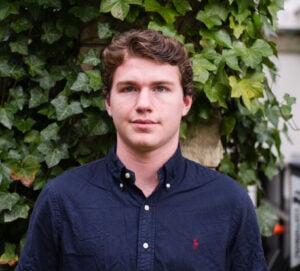 Peter Westbrook, Co-Founder, Fundusol
Peter Westbrook, Co-Founder, Fundusol
Peter Westbrook, originally from Kansas, now studies at Stanford in California. He is currently working towards a bachelor’s degree in mathematics and a master’s degree in statistics. Peter’s close ties to the world of agriculture growing up, along with his passion for quantitative problem-solving, led him being a co-founder in Fundusol, a startup dedicated to modeling agrivoltaics and designing better agrivoltaics systems.
We will be using Microsoft Teams to facilitate your participation in the upcoming event. You do not need to have an existing Teams account in order to participate in the broadcast – the course will play in your browser and you will have the option of using a microphone to speak with the room and ask questions, or type any questions in via the chat window and our on-site representative will relay your question to the instructor.
- Microsoft recommends downloading and installing the Teams app if possible. You may also use the Edge browser or Chrome.
- You will receive a separate email with a unique link to a personalized landing page which will include links to join all sessions of this event.
- If you are using a microphone, please ensure that it is muted until such time as you need to ask a question.
- The remote meeting connection will be open approximately 30 minutes before the start of the course. We encourage you to connect as early as possible in case you experience any unforeseen problems.
Please Note: Confirmed speakers do not need to register and are encouraged to participate in all sessions of the event. If you are a speaker and have any questions please contact our offices at 1.303.770.8800
Please Note: This event is being conducted entirely online. All attendees will connect and attend from their computer, one connection per purchase. For details please see our FAQ
If you are unable to attend at the scheduled date and time, we make recordings available to all attendees for 7 days after the event
REGISTER NOW FOR THIS EVENT:
Agrivoltaics Fundamentals and Best Practices
August 20-21, 2024 | Online
| Individual attendee(s) - $ 1295.00 each | |
Volume pricing also availableIndividual attendee tickets can be mixed with ticket packs for complete flexibility |
|
| Pack of 5 attendees - $ 5,180.00 (20% discount) | |
| Pack of 10 attendees - $ 9,065.00 (30% discount) | |
| Pack of 20 attendees - $ 15,540.00 (40% discount) | |
Your registration may be transferred to a member of your organization up to 24 hours in advance of the event. Cancellations must be received on or before July 19, 2024 in order to be refunded and will be subject to a US $195.00 processing fee per registrant. No refunds will be made after this date. Cancellations received after this date will create a credit of the tuition (less processing fee) good toward any other EUCI event. This credit will be good for six months from the cancellation date. In the event of non-attendance, all registration fees will be forfeited. In case of conference cancellation, EUCIs liability is limited to refund of the event registration fee only. For more information regarding administrative policies, such as complaints and refunds, please contact our offices at 303-770-8800
Credits

EUCI is accredited by the International Accreditors for Continuing Education and Training (IACET) and offers IACET CEUs for its learning events that comply with the ANSI/IACET Continuing Education and Training Standard. IACET is recognized internationally as a standard development organization and accrediting body that promotes quality of continuing education and training.
EUCI is authorized by IACET to offer 1.2 CEUs for this event
Requirements for Successful Completion of Program
Participants must sign in/out each day, be in attendance for the entirety of the course to be eligible for continuing education credit.
Instructional Methods
Power Point presentations, group discussion and case studies
Upon successful completion of this event, program participants interested in receiving CPE credits will receive a certificate of completion.
Conference CPE Credits: 13.5
There is no prerequisite for this Conference.
Program field of study: Specialized Knowledge
Program Level: Basic
Delivery Method: Group Internet Based
Advanced Preparation: None
 EUCI is registered with the National Association of State Boards of Accountancy (NASBA) as a sponsor of continuing professional education on the National Registry of CPE Sponsors. State boards of accountancy have final authority on the acceptance of individual courses for CPE credit. Complaints regarding registered sponsors may be submitted to the National Registry of CPE Sponsors through its web site: www.nasbaregistry.org
EUCI is registered with the National Association of State Boards of Accountancy (NASBA) as a sponsor of continuing professional education on the National Registry of CPE Sponsors. State boards of accountancy have final authority on the acceptance of individual courses for CPE credit. Complaints regarding registered sponsors may be submitted to the National Registry of CPE Sponsors through its web site: www.nasbaregistry.org
Who Should Attend
- Solar project developers
- Solar investors and sponsors
- Solar project lenders
- Solar project legal, accounting and other advisors
- Solar project OEM suppliers
- Solar project EPCs
- Solar project environmental advisory firms
- Agrivoltaic service providers
- Utilities
- State and federal environmental staff
- State regulatory commission staff
- Community economic development staff
- Community stakeholders
